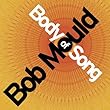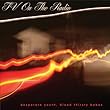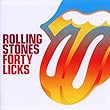 Rock music is associated with cool temperaments and hot passions, with firm masculinity and anti-establishment ambivalence, with noise and with peace—with so many contradictory attitudes and states that it is no wonder musicians feel the need to pose before playing. That is not healthy.
Rock music is associated with cool temperaments and hot passions, with firm masculinity and anti-establishment ambivalence, with noise and with peace—with so many contradictory attitudes and states that it is no wonder musicians feel the need to pose before playing. That is not healthy.
Category: Music reviews
Mixed Musical Methods: TV on the Radio
 There are discrete elements of folk, rock, and subtle dance music, and even world music, in the work of TV on the Radio. (I think also of Bobby McFerrin and Nona Hendryx.) It is fascinating that the band has been acclaimed for producing rock music (I sometimes think that whatever certain critics like they call rock music—until they stop liking it).
There are discrete elements of folk, rock, and subtle dance music, and even world music, in the work of TV on the Radio. (I think also of Bobby McFerrin and Nona Hendryx.) It is fascinating that the band has been acclaimed for producing rock music (I sometimes think that whatever certain critics like they call rock music—until they stop liking it).
Disillusionment and Extreme Pleasures: the Rolling Stones’ Forty Licks
 There is something still wonderful about Jagger being so compelling a figure—desired, envied, respected—without being likable. Mick Jagger’s sensuality has no savoring softness and his sorrow has no sensitivity—his is a very modern temperament. (It is possible he synthesized the eloquence of British literary tradition with the hedonistic license of the blues and the experimental openness of modern art.)
There is something still wonderful about Jagger being so compelling a figure—desired, envied, respected—without being likable. Mick Jagger’s sensuality has no savoring softness and his sorrow has no sensitivity—his is a very modern temperament. (It is possible he synthesized the eloquence of British literary tradition with the hedonistic license of the blues and the experimental openness of modern art.)
The Lasting Icon: Elvis Presley and his 30 #1 Hits
< Hearing Elvis Presley’s songs again, I become aware that a song can break your heart—and it’s not always the song you think it is going to be or for the reason you expect. A song can remind you, as it has me, of a time when you were younger, when you took much for granted, and you can weep at that kind of innocence, even though innocence—or ignorance—came to cause you so much pain.
Hearing Elvis Presley’s songs again, I become aware that a song can break your heart—and it’s not always the song you think it is going to be or for the reason you expect. A song can remind you, as it has me, of a time when you were younger, when you took much for granted, and you can weep at that kind of innocence, even though innocence—or ignorance—came to cause you so much pain.
Howlin’ Wolf and the Blues, Then and Now
Most of the songs on Howlin’ Wolf’s self-titled collection released in 1984—and which apparently corresponds to Wolf’s second album for Chess Records—were written by songwriter-musician Willie Dixon. A favorite song of mine, “Who’s Been Talkin’,” was written by Howlin’ Wolf,…
1987/2007: the 20th anniversary of Introducing the Hardline According to Terence Trent D’Arby
 Terence Trent D’Arby’s intelligence is transparent. Was he too intelligent for American audiences? Was it his lack of humility that alienated, or his intelligence? (Many people prefer artists to pretend as if their mastery is accidental, rather than a focus of ambition, consciousness, and will.) Was D’Arby’s elastic sense of identity alienating?
Terence Trent D’Arby’s intelligence is transparent. Was he too intelligent for American audiences? Was it his lack of humility that alienated, or his intelligence? (Many people prefer artists to pretend as if their mastery is accidental, rather than a focus of ambition, consciousness, and will.) Was D’Arby’s elastic sense of identity alienating?
Essential: The Art, Emotion, and Limitations of Luther Vandross
 Vandross’s background singers—some of the industry’s best—are his true human witnesses, his most impressive collaborators. (I imagine some of his background singers may think they are responsible for Luther Vandross’s success.) Vandross’s sensibility and voice—a sensibility and voice created out of choices, influences, and ambitions—are so unique that the otherworldly music that accompanies him may be absolutely necessary.
Vandross’s background singers—some of the industry’s best—are his true human witnesses, his most impressive collaborators. (I imagine some of his background singers may think they are responsible for Luther Vandross’s success.) Vandross’s sensibility and voice—a sensibility and voice created out of choices, influences, and ambitions—are so unique that the otherworldly music that accompanies him may be absolutely necessary.
The Force Behind The Power: Jazz, Joy, and Social Vision in the Work of Diana Ross
 My reconsideration of Ross and Stolen Moments has been not only aesthetic and intellectual. In a time of personal trouble, I found she was one of the few singers I could listen to, and that the joy in her work gave me comfort. Pleasure is usually circumstantial and momentary, but joy is usually rooted in something deeper—a sense of self, great belief, a tested system of thought, love, and even trusted and proven community. Is there anything wiser than joy?
My reconsideration of Ross and Stolen Moments has been not only aesthetic and intellectual. In a time of personal trouble, I found she was one of the few singers I could listen to, and that the joy in her work gave me comfort. Pleasure is usually circumstantial and momentary, but joy is usually rooted in something deeper—a sense of self, great belief, a tested system of thought, love, and even trusted and proven community. Is there anything wiser than joy?
Frank Sinatra’s Classic Sinatra: His Great Performances, 1953-1960
Conversational, direct, lively, rhythmic, with an intelligent deployment of varied tones: that is Sinatra in Cole Porter’s “I’ve Got You Under My Skin.” (What is it about Porter that liberates? The sophistication? The sexiness? Everything?)
In the Margins, Truth: Ani DiFranco’s Carnegie Hall 4-6-02 and Reprieve
 The fact is that there’s not much consistently intelligent political comment in popular music, and I do like much of what I hear in her work. She remembers things that others forget, even though those things are very important. She reads her own poetry, which contain significant perceptions and well-known politically progressive ideas, and she also reads the poetry of Judy Grahn.
The fact is that there’s not much consistently intelligent political comment in popular music, and I do like much of what I hear in her work. She remembers things that others forget, even though those things are very important. She reads her own poetry, which contain significant perceptions and well-known politically progressive ideas, and she also reads the poetry of Judy Grahn.